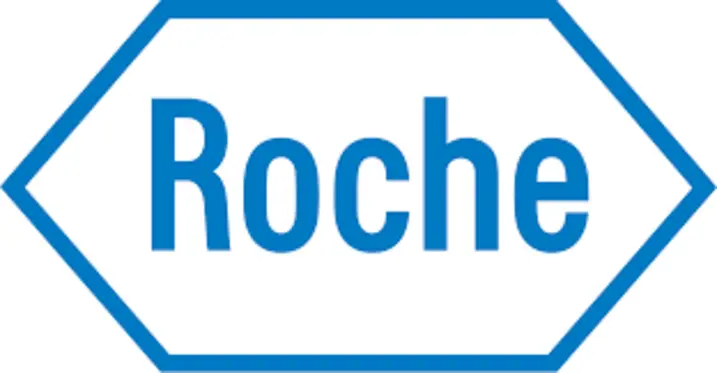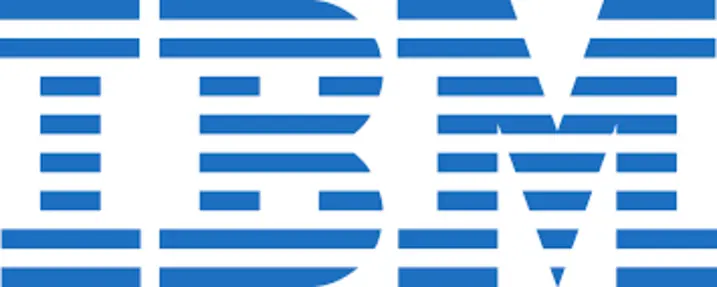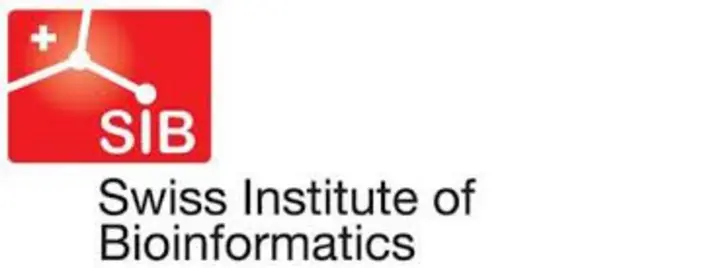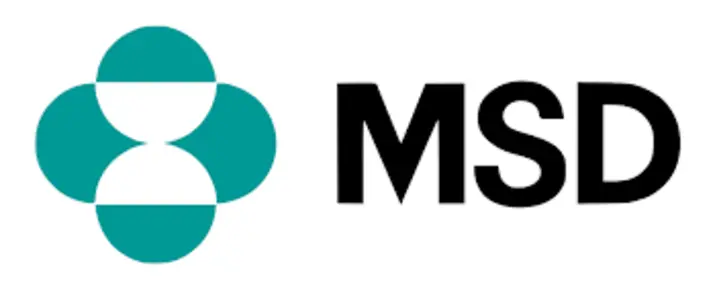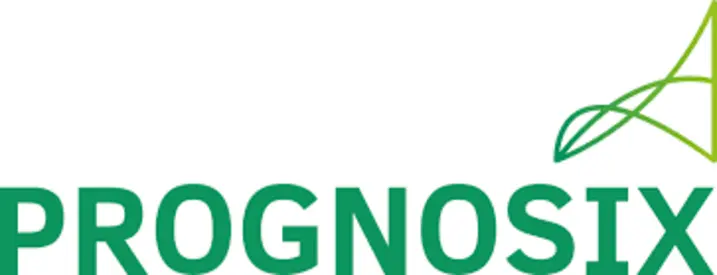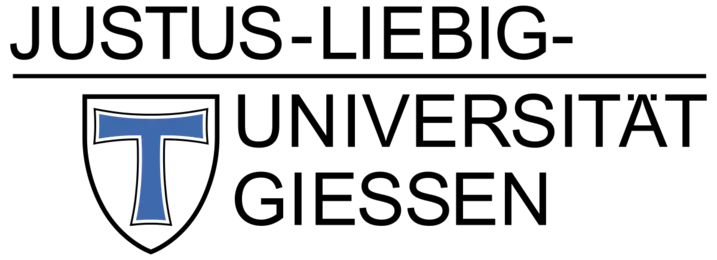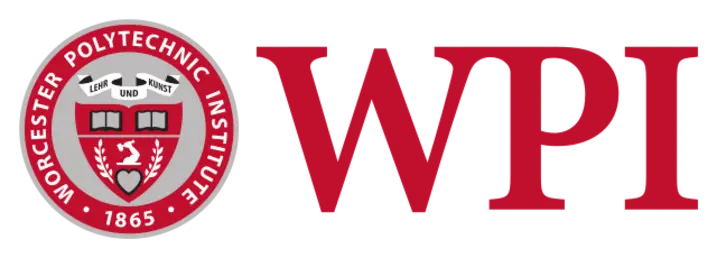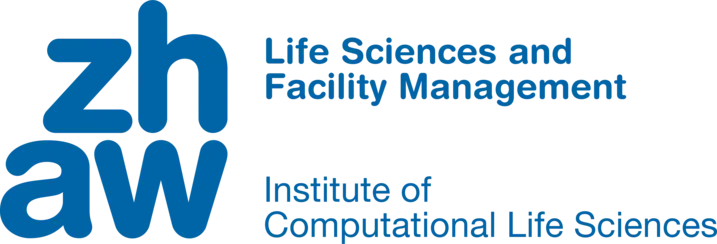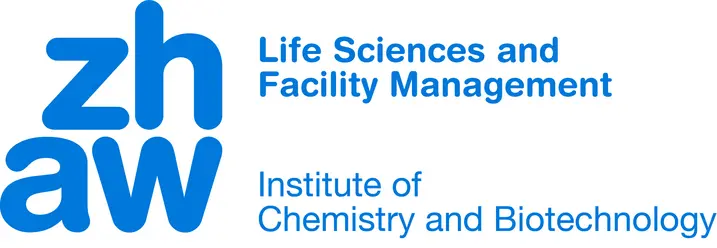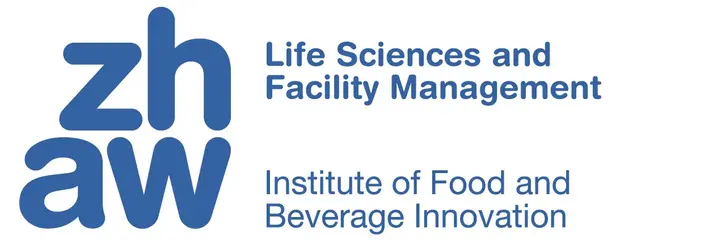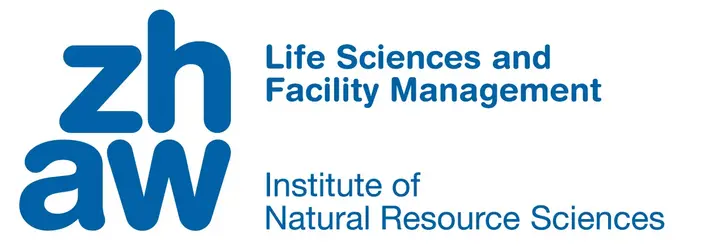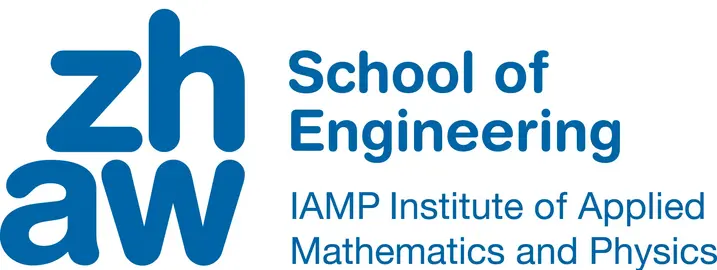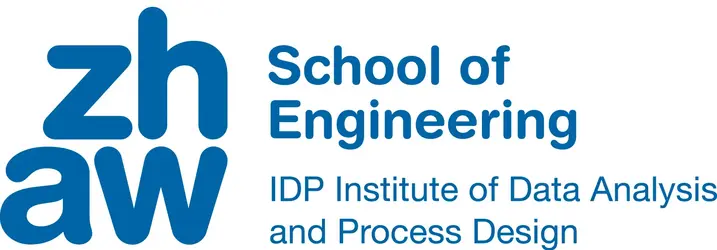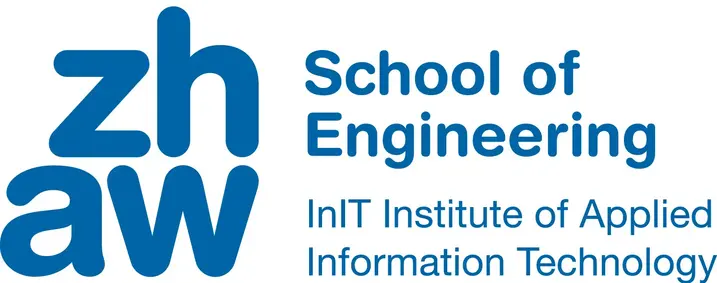Master's thesis
The Master’s thesis is the scientific core of your studies. Through the thesis you not only demonstrate your knowledge and skills, but also the ability to successfully integrate into a research group and expand your knowledge in your specific field of scientific expertise.
- You choose your specialist courses with a view to the topic of your thesis, which you determine before starting your studies.
- Based on the theoretical foundations of the study programme, you answer a specific question in this research field.
- You work out solutions that are relevant for research, industry and society, often in co-operation with national and international partners.
- Depending on your topic, you work in a research group at the ZHAW in Wädenswil or externally with an industrial or research partner.
Master’s Thesis at Partner University
|
Partner University |
Contact | Topics / Field |
|---|---|---|
|
Bioinformatics and System Biology University of Giessen, Germany Exchange Programme With the University of Giessen we have a SEMP contract (Swiss-European Mobility Programme) where you get financial support for the exchange. |
Jochen Blum Theo Smits Maria Anisimova |
Genome annotation, Comparative genomics Cloud-Computing / Big Data- Pipeline / Workflow-Development, Research data management Microbiome data analysis Exchange Programme The WPI is an official partner university of ZHAW. |
| . | Elke A. Rundensteiner |
Big Data Infrastructures and Data Management and Data Mining Leveraging Smart Digital Technology for addressing Wellness & … |
For more information, please visit our website for the international exchange options or contact Dr. Matthias Nyfeler, the head of the ACLS Master's programme.
Bioinformatics
|
Research Group |
Contact | Topics / Field |
|---|---|---|
| Computational Genomics (ICLS) | Maria Anisimova |
|
|
Environmental Genomics and Systems Biology (IUNR) |
Theo Smits |
food science, environment and agriculture |
| Biomedical String Analysis (ICLS) | Manuel Gil |
|
| Applied Mathematical Biology (ICLS) | Victor Garcia |
applied computational genomics |
| Computational Environment (ICLS) | Martin Schüle |
with Deep Learning |
| Biomedical String Analysis (ICLS) | Ahmad Aghaebrahimian |
|
| Computational Genomics (ICLS) | Tugçe Bilgin Sonay |
|
Computational Chemistry
| Research Group | Contact | Topics / Field |
|---|---|---|
|
Section for Organic and Medicinal Chemistry (ICBT) |
Stefan Höck |
abstractions in cheminformatics in tactically typed, purely functional programming languages (i.e. Haskell) |
| Applied Mathematics and Physics (IAMP) | Manuel Dömer |
|
| Computational Environment (ICLS) | Martin Schüle |
Neural Networks |
| Environmental Analytics (ICBT) | Susanne Kern |
|
| Advanced Signal Analytics (ICLS) | Olivier Merlo |
|
Biotechnological Processes
| Research Group | Contact | Topics / Field |
|---|---|---|
| Centre for Analytical Chemistry (ICBT) | Caspar Demuth |
for bioprocesses |
|
Centre for Biocatalysis, Environmental- and Process-Technology (ICBT) |
Rebecca Buller |
|
|
Bioprocess Technology Research Group (ICBT) |
Lukas Neutsch |
and soft-sensors for real-time bioprocess control and optimization physiology-related process data for quality assurance in biopharmaceutical production data processing environments and workflows (R Studio, programmable process control systems) in life science laboratories with fluorescence microscopy and atomic force microscopy |
| Chemical Engineering (ICBT) | Judith Krautwald |
and biotechnology real plant processes environmental science and production of bioenergy methanation processes |
| Biomedical Simulation (ICLS) | Sven Hirsch |
|
|
Microbiology and Molecular Biology (ICBT) |
Kerstin Gari |
|
Digital Health, Biology and Neuroscience
|
Research Group |
Contact | Topics / Field |
|---|---|---|
| Biomedical Simulation (ICLS) | Sven Hirsch |
|
| Medical Image Analysis & Data Modeling (ICLS) | Georg Spinner |
|
|
Cognitive Computing in Life Sciences (ICLS) Collaboration with Intel |
Yulia Sandamirskaya |
|
| Medical Physics (Dep. T) | Stephan Scheidegger |
dynamics of cancer in vitro and in vivo |
|
Hospitality Management Competency Group (IFM) |
Nicole Gerber |
interpendencies in hospitals and healthcare organisations |
| Institute of Computational Life Sciences (ICLS) | Thomas Ott |
biological dynamics |
| Data Management & Visualization (ICLS) | Robert Vorburger |
|
| Predictive Analytics (ICLS) | Krzysztof Kryszczuk |
temperature sensor |
| Biomedical Engineering (Dept. T) | Daniel Baumgartner |
|
|
Applied Complex Systems Science (Dept. T) |
Ruedi Füchslin |
life-like systems |
| Biosignal Analysis & Digital Health (ICLS) | Samuel Wehrli |
|
| Advanced Signal Analytics (ICLS) | Tobias Peter |
as well as for analysis of time-series data |
| Biomedical String Analysis (ICLS) | Ahmad Aghaebrahimian |
|
| Computational Genomics (ICLS) | Maria Anisimova |
|
| Computational Genomics (ICLS) | Tugçe Bilgin Sonay |
|
Applications in Food Industry
| Research Group | Contact | Topics / Field |
|---|---|---|
| Simulation & Optimization (ICLS) | Lukas Hollenstein |
complex processes in production using discrete-event simulation and data analytics |
| Food Microbiology Research Group (ILGI) | Lars Fieseler |
sequences and phage derived proteins |
| Research Group Food Technology (ILGI) | Nadina Müller |
their impact of end product quality digitalisation of food processing |
| Coffee Exellence Center (ICBT) | Chahan Yeretzian |
using advanced statistical methods |
| Food Technology Research Group (ILGI) | Claudia Müller |
food value chain and efficient data-driven decision-making for greater sustainability |
Applications in Environment and Agriculture
| Group | Contact | Topics / Field |
|---|---|---|
| Geoinformatics research group (IUNR) | Patrick Laube |
|
|
Cognitive Computing in Life Sciences (ICLS) Collaboration with Intel |
Yulia Sandamirskaya |
|
| Computational Environment (ICLS) | Martin Schüle |
environmental sciences and finance |
| Institute of Computational Life Sciences (ICLS) | Thomas Ott |
|
| Institute of Computational Life Sciences (ICLS) | Ivo Kaelin |
activity in freshwater samples |
| Advanced Signal Analytics (ICLS) | Matthias Nyfeler |
as well as time-series data environmental and financial impacts of urban landscape architecture in Zurich in collaboration with Landsale AG |
|
Agricultural and Resource Economics Group (IUNR) |
Raushan Bokusheva |
assessing the impact of climate change in agriculture (supervisor has access to large panel dataset from Europe and Eastern and Southern Africa) |
| Environmental Biotechnology (ICBT) | Hans-Joachim Nägele |
and production of bioenergy |
| Research Group Ecotechnology (IUNR) | Andreas Schönborn |
collaboration with a startup for the evaluation of microcontaminants in food, plastics and the environment |
| Edge Computing & Interfaces (ICLS) | Christian Glahn |
with digital environments and processes and decentral smart data processing in the life sciences |
| Aquaculture Systems (IUNR) | Dominik Refardt |
facilities or photobioreactors to improve their design and construction and deep learning to automatically assess the health of fish using computer vision for recirculating aquaculture and hydroponic production |
|
Advanced Signal Analytics (ICLS) |
Tobias Peter |
as well as for analysis of time-series data |
Master Thesis Topics with Full Description
The table above lists thesis supervisors and their fields of interest. All these supervisors provide thesis topics. You can get in touch with them to learn more about their topics. In the following you find a small selection of topics with full description:
Moisture Prediction – Curve Fitting (PDF 103 kB), Supervisor: Matthias Nyfeler (ICLS)
Bioinformatics and the Microbiome (PDF 66 kB), Supervisor: Theo Smits (IUNR)
Antimicrobial resistance prediction from MALDI-TOF mass spectra, (PDF 174 kB) Supervisor: Stefan Glüge (ICLS)
Differentiation of bone marrow cell morphologies using deep neural networks (PDF 179 kB), Supervisor: Stefan Glüge (ICLS)
Effect-based Trace Analytics of Toxic Substances leveraging Native Cloud Computing Services (Cognitive Services, AI and ML) (PDF 500 kB), Supervisor: Andreas Schönborn (INUR)
Exploring the effectiveness of cancer-immunotherapies for non-small lung cancer (PDF 527 kB), Supervisor: Victor Garcia (ICLS)
How does an ancient protein expression regulation mechanism affect how the choice of codons in DNA (PDF 503 kB), Supervisor: Victor Garcia (ICLS)
Industry Collaborations
Depending on your topic, you work in a research group at the ZHAW in Wädenswil or externally with an industrial or research partner. In any case, you have a local thesis advisor at ZHAW. Ask our advisors about possible industry collaborations. In the thesis Market-Place you find a list with some possible thesis topics and collaboration partners.
Completed Master Theses
| Year of Graduation | Student | Title | Advisor |
|---|---|---|---|
| 2019 | Delucchi Matteo | Tandem Repeat Variation in Genomic Databases | Maria Anisimova (ZHAW, ICLS) |
| 2019 | Gygax Gregory | Smart Algorithms for Efficient Yield Forecasting | Thomas Ott (ZHAW, ICLS) |
| 2019 | Kaufmann Moritz | Evolution of multidrug resistance in pEL60 plasmids | Theo Smits (ZHAW, IUNR) |
| 2019 | Meier Patrick | A mathematical model to describe the relationship between the unfolded protein response (UPR) and production of recombinant proteins in the yeast Pichia pastoris | Sven Hirsch (ZHAW, ICLS) |
| 2019 | Naef Paulina | Optimizing of the Tandem Repeat Annotation Library (TRAL) and Copy Number Variations of Tandem Repeats in RNAseq Illumina Data | Maria Anisimova (ZHAW, ICLS) |
| 2019 | Peechatt Jithin Mathew | Characterisation of Bias and Variance of Progressive Sequence Alignment | Manuel Gil (ZHAW, ICLS) |
| 2019 | Schiling Daniel | Geoinformatics methods for a better understanding of wildlife-caused traffic accidents in the Cantons of Zurich (Switzerland) | Patrick Laube (ZHAW, IUNR) |
| 2019 | Selvaratnam Laksathan | Understanding cerebrovascular pathologies within the Circle of Willis using 0D flow network simulations | Sven Hirsch (ZHAW, ICLS) |
| 2019 | Siegrist Jonas Aaron | Genome mining of polyketide and nonribosomal peptide synthases in actinomycetes | Martin Sievers (ZHAW, ICBT) |
| 2019 | Ta Cam Phuong | Estimating Insertion and Deletion Parameters from Pairwise Sequence Alignments | Manuel Gil (ZHAW, ICLS) |
| 2019 | Weichart Sonja | Continued development of an online application for the use in microbial batch cultures: Planning and simulation of experiments and data analysis and management | Robert Vorburger (ZHAW, ICLS) |
| 2020 | Atilgan Cahit | Synthetic health data generation with pre- and intraoperative Total Knee Arthroplasty (TKA) parameters for ligament balancing and subsequent outcome analysis | Daniel Baumgartner (ZHAW) |
| 2020 | Joseph Abel Thomson | Design of Algorithms to study the property of Reversibility in TKF91 Model | Manuel Gil (ZHAW, ICLS) |
| 2020 | Mikos Alexander | A Perception-based Adaptive Immune System Model to describe the Effect of Anticancer Radiation Therapy In-Silico | Stefan Scheidegger (ZHAW, SoE) |
| 2020 | Müller Georg | Simulation of Renewable and Self-Sufficient Building Energy | Ivo Kälin (ZHAW, ICLS) |
| 2020 | Nüesch Manuel | Simulation of separation tasks using vacuum distillation | Simone Ulzega (ZHAW, ICLS) |
| 2020 | Poulose Eldhose | A study of dynamics of Indels using ProPIP, PRANK and MAFFT | Manuel Gil (ZHAW, ICLS) |
| 2020 | Seidel Stefan | Gas bubble simulation for the computation of oxygen supply for cells | Werner Sören (ZHAW, ICBT) |
| 2020 | Brühwiler Robin | Stochastic Optimization of Time-Dose-Fractionation Schemes in Cancer Radiation Therapy | Sven Hirsch (ZHAW, ICLS) |
| 2021 | Antalfy Imre Istvàn | A Data Science Approach to Solid Waste Biogas Plats Data Pre-processing and Modelling with Neural Networks | Martin Schüle (ZHAW, ICLS) |
| 2021 | Chandra Saurabh | Analysis of health conditions of cancer patients in palliative care based on movement data tracked by wearable devices | Thomas Ott (ZHAW, ICLS) |
| 2021 | Mauch Ueli | Modelling tick risk from uncertain citizen science data. Exploring the benefits of irregular spatial tessellations | Patrick Laube (ZHAW, ICLS) |
| 2021 | Krayer Patricia | Modelling Environmental and Nutritional Impacts of Vegan Agriculture | Matthias Nyfeler (ZHAW, ICLS) |
| 2021 | Rey Sofia | Health Status Analysis from Wearable Children Patient Data | Sven Hirsch (ZHAW, ICLS) |
| 2021 | Roth Sandro | AngioSynth - Cross-modality synthesis of cerebral angiographies using CycleGANs | Norman Juchler (ZHAW, ICLS) |
| 2021 | Schmutz Stefan | Characterizing undetermined sequences from metagenomic sequencing | Maria Anisimova (ZHAW, ICLS) |
| 2021 | Von Gunten Cédric | Public sequencing data mining and in silico protein masses prediction for improving accurate subspecies determination in Bacillus cereus using MALDI-TOF MS | Jöel Pothier (ZHAW, IUNR) |
| 2021 | Von Rotz Sebastian | Evaluation and development of a bioinformatics workflow for amplicon sequencing with nanopore long read technology | Jöel Pothier (ZHAW, IUNR) |
| 2021 | Wegmann Thomas | Computer Vision for the Automated Validation of Cancer Drugs | Robert Vorburger (ZHAW, ICLS) |
| 2021 | Wrobel Anna | Prediction of parturition in mares based on body sensor data | Thomas Ott (ZHAW, ICLS) |
| 2022 | Amacker Julian Martin | Analysis of brain connectivity using phase transfer entropy and deep learning based causal inference | Sven Hirsch (ZHAW, ICLS) |
| 2022 | Bajka Daniel | Extraction and Provision of Tacit Knowledge from Institutions Data Repositories on Energy Research | Christian Glahn (ZHAW, ICLS) |
| 2022 | Gees Marco | Investigation of the Gene Expression Level for CODON Optimized Heterologous Genes | Christin Peters (ZHAW, ICLS) |
| 2022 | Graf Dominik | Automatic interpretation of NMR Spectra using Neural Networks | Martin Schüle (ZHAW, ICLS) |
| 2022 | Grossenbacher Amira | Transition analysis of small-scale and at-scale Chromatography Columns | Olivier Merlo (ZHAW, ICLS) |
| 2022 | Höhener Rebecca Juliette | Applying Reinforcement Learning to a Production Scheduling Problem | Lukas Hollenstein (ZHAW, ICLS) |
| 2022 | Iglhaut Clara Ev Andrea | Indel-Aware Parsimony Methods for Phylogenetic Inferences | Manuel Gil (ZHAW, ICLS) |
| 2022 | Joos Matthias | Optimization of the Delirium Algorithm Workflow of the University Hospital of Zurich with Data Analytics and Machine Learning | Thomas Ott (ZHAW, ICLS) |
| 2022 | Jordan Sara | Community analysis of methanogenic microbiomes in biogas reactors | Theo Smits (ZHAW, IUNR) |
| 2022 | Keel Thomas | Modeling the aging behavior of electrochemical sensors | Caspar Demuth (ZHAW, ICLS) |
| 2022 | Memeti Nurdzane | The CRISPR region analysis program (CRAP) | Theo Smits (ZHAW, IUNR) |
| 2022 | Schaub Lukas | Cell growth and lifelines analysis CFD Solver Implementation | Dieter Eibl (ZHAW, ICLS) |
| 2022 | Senn Saskia | Ensemble of BERT Variants for Depression Detection | Claus Horn (ZHAW, ICLS) |
| 2022 | Thomas Chirayil Harry | Evaluation of Transfer Learning for Protein Function Prediction | Claus Horn (ZHAW, ICLS) |
| 2022 | Von Däniken Kim | Generating synthetic order data from clinical laboratories using classical methods of statistics and machine learning | Lukas Hollenstein (ZHAW, ICLS) |
| 2022 | Walder Tim | Application of data exploration algorithms on a labelled property graph | Robert Vorburger (ZHAW, ICLS) |
| 2023 | Baiges Samuel | Polypharmacy Analysis in Delirium ICU Patients | Stefan Glüge (ZHAW, ICLS) |
| 2023 | Benvenga Vanni | Food Pathogen Metagenomics | Theo Smits (ZHAW, IUNR) |
| 2023 | Berger Thomas | Advanced Spectroscopic Analysis and Data Exploitation Concepts in Bioprocessing | Lukas Neutsch (ZHAW, ICBT) |
| 2023 | Bertoz Marc Oliver | Deep Learning for Vortex Detection and Tracking in Cardiac MRI | Robert Vorburger (ZHAW, ICLS) |
| 2023 | Biland Julien | Exploratory Analysis of Peripheral Neuropathy Patient Biomarker and Symptom Characteristics | Norman Juchler (ZHAW, ICLS) |
| 2023 | Bourtzos Anastasuios | Bayesian inference for skeletal muscle structure and perfusion estimation from magnetic resonance imaging | Georg Spinner (ZHAW, ICLS) |
| 2023 | Breitenmoser Linus | Automatic creation and selection of mechanistic models of cell culture processes in bioprocess engineering | Lukas Neutsch (ZHAW, ICBT) |
| 2023 | Bürkli Tim | Electric Power prediction of a waste incineration plant using machine & deep learning | Robert Vorburger (ZHAW, ICLS) |
| 2023 | Gericke Eric | Flood Modeling With Neural Cellular Automata | Martin Schüle (ZHAW, ICLS) |
| 2023 | Graber David | Protein Interaction Prediction with Graph Convolutional Networks and AlphaFold-predicted Protein Structures | Claus Horn (ZHAW, ICLS) |
| 2023 | Grossmann Leonie | Automated Quantification of Histological Constituents in Thrombosed Aneurysms | Norman Juchler (ZHAW, ICLS) |
| 2023 | Imstepf Nicolas | Re-Programming of Fe(II)/α-Ketoglutarate-Dependent Hydroxylases to Halogenases | Rebecca Buller (ZHAW, ICBT) |
| 2023 | Koch Kilian | Deep learning assisted X-ray photoelectron spectroscopy analysis | Martin Schüle (ZHAW, ICLS) |
| 2023 | Kunz Domink | AI-based patient identity verification for radio-therapeutic 3D cone beam computed tomography | Norman Juchler (ZHAW, ICLS) |
| 2023 | Maslov Dmitry | Federated Learning for Speech Processing on the Edge: Practical Implementation and Considerations for Reducing Network Bandwidth Requirements of Voice-Aware Edge Computing Applications | Christian Glahn (ZHAW, ICLS) |
| 2023 | Maurer Manuel | Data driven analysis of Fluorescence Spectroscopy of Algae as a compound monitoring tool in Bioprocesses | Lukas Neutsch (ZHAW, ICBT) |
| 2023 | Medici Milo | Data Framework to Characterize and Identify Wildlife Corridors | Robert Vorburger (ZHAW, ICLS) |
| 2023 | Mohammad Yar Kevin | Machine-learning assisted engineering of a Fe(II)/αKG-dependent Hydroxylase to accept lignin derivatives | Rebecca Buller (ZHAW, ICBT) |
| 2023 | Orbeanu Georgiana | Evaluation of Deep Neural Networks for Haematology Image Classification | Stefan Glüge (ZHAW, ICLS) |
| 2023 | Rey Phil | Automatic spinal canal segmentation on axial spine MRI images using a U-Net CNN | Georg Spinner (ZHAW, ICLS) |
| 2023 | Rieder Jonathan | Applied Machine Learning Algorithms for automated Flow Cytometry Data Evaluation | Lukas Neutsch (ZHAW, ICBT) |
| 2023 | Saxer Jasmin | Ontology-Aware Biomedical Text Classification | Ahmad Aghaebrahimian (ZHAW, ICLS) |
| 2023 | Schittly Timo | Dynamic modelling of nitrogen flow through fish gut to estimate nitrogen excretions | Dominik Refardt (ZHAW, IUNR) |
| 2023 | Seppey Mickaël | Assessment of Indel Handling in Multiple Sequence Alignment and Ancestral Reconstruction Tools: Insights from HIV-1 Analysis | Maria Anisimova (ZHAW, ICLS) |
| 2023 | Simonenko Viktoriia | Improving Parasite Diagnostics via Advanced Data & Image Analysis | Lukas Neutsch (ZHAW, ICBT) |
| 2023 | Teoh Melissa | Deconvolution of Cell-Free DANN | Victor Garcia (ZHAW, ICLS) |
| 2023 | Zumbihl Muriel Margaux | Generic modelling concept for a bioprocess plant simulation and digital twin | Lukas Hollenstein (ZHAW, ICLS) |
| 2024 | Bhavani Mohan Preethi Latha | Segmentation of Metastatic Melanoma Lesions using Deep Learning | Norman Juchler (ZHAW, ICLS) |
| 2024 | Danaila Mihai | Phylogenetic tree search heuristic optimisation using deep learning methods | Manuel Gil (ZHAW, ICLS) |
| 2024 | Delfosse Xavier | Implementation and Usage of an Electronic nose for the monitoring of Bioprocesses | Lukas Neutsch (ZHAW, ICBT) |
| 2024 | Etterli Claudio | Pretty SMILES: Generating molecular coordinates in a pure functional programming language | Stefan Höck (ZHAW, ICBT) |
| 2024 | Golubeva Ekaterina | Comparative Evaluation of Deep Neural Networks for Intracranial Aneurysm Segmentation | Stefan Glüge (ZHAW, ICLS) |
| 2024 | Heilig Salome Valentina | Pure functional cycle perception in cheminformatics | Stefan Höck (ZHAW, ICBT) |
| 2024 | Jeanrenaud Alain | Callus Weight Prediction | Robert Vorburger (ZHAW, ICLS) |
| 2024 | Montagne Cédric | Advancing NMR peak list analysis: Deep learning multiplet recognition | Martin Schüle (ZHAW, ICLS) |
| 2024 | Sanfilippo Luca | Analyzing of Tailing Dam Failures: Quantitative Damage and Risk Estimation using ML | Martin Schüle (ZHAW, ICLS) |
| 2024 | Schwyn Raphael | Extract Chilling: Chemical and Statistical Validation | Chahan Yeretzian (ZHAW, ICBT) |
| 2024 | Vlahakis Shannon | Exploring The Potential of Remote Monitoring Of Blood Pressure On The Management Of Hypertension In Pregnant Women At Parirenyatwa Hospital: An Observational Feasibility Study | Samuel Wehrli (ZHAW, ICLS) |
| 2024 | Wang Mengxiao | Wearable Technologies for Children with Attention Deficits: Writing Recognition | Samuel Wehrli (ZHAW, ICLS) |
| 2024 | Wirtz Dario | Reinforcement Learning for Enzyme Engineering | Matthias Nyfeler (ZHAW, ICLS) |
| 2025 | Bachmann Jasmin | Analysis of Delirium in Intensive Care Patients using Bayesian Networks | Georg Spinner (ZHAW, ICLS) |
| 2025 | Benzsay Rebeka | Detection of Expression Short Tandem Repeats in Genomic Sequences Using Deep Learning Techniques | Maria Anisimova (ZHAW, ICLS) |
| 2025 | Petridou Olga | Querying integrated sustainability databases using Retrieval Augmented Generation (RAG) | Robert Vorburger (ZHAW, ICBT) |
| 2025 | Roulin Sébastien | Towards Hallucination-free Biomedical Summarization | Manuel Gil (ZHAW, ICLS) |
Das könnte Sie auch interessieren
MSLS Community Centre
You are invited to browse the Moodle platform of the Cooperation Master in Life Sciences (MSLS)!
Studies A-Z
From crediting of credits already earned to community services - everything at a glance.
Registration Master's programme
MSLS Community Centre
Studies A-Z
Ready for a new chapter in your life? Apply now.
You are invited to browse the Moodle platform of the Cooperation Master in Life Sciences (MSLS)!
From crediting of credits already earned to community services - everything at a glance.








